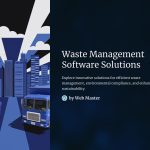


 As the waste management industry evolves with new regulations, sustainability initiatives, and technological advancements, experienced professionals seeking new opportunities must stay competitive. Whether you’re moving to a higher position, switching companies, or exploring a different sector within waste management, strategic planning is key. This guide offers expert tips to help seasoned professionals transition smoothly and successfully.
As the waste management industry evolves with new regulations, sustainability initiatives, and technological advancements, experienced professionals seeking new opportunities must stay competitive. Whether you’re moving to a higher position, switching companies, or exploring a different sector within waste management, strategic planning is key. This guide offers expert tips to help seasoned professionals transition smoothly and successfully.

Assess Your Current Skills and Experience
Before making a move, take time to evaluate your skills, qualifications, and experience. Many waste management professionals accumulate expertise in areas like hazardous waste disposal, recycling programs, and compliance with environmental regulations. Identify what sets you apart:
- Do you specialize in industrial, municipal, or hazardous waste management?
- Are you certified in waste disposal or environmental compliance (e.g., RCRA, OSHA, HAZWOPER)?
- Have you successfully led projects to improve waste reduction or sustainability efforts?
Understanding your strengths helps you target roles that align with your expertise and aspirations.
Explore Waste Management Certifications
Research Industry Trends and Opportunities
The waste management sector is continuously evolving due to stricter environmental regulations, new technologies, and an increased focus on sustainability. Staying informed about industry trends can help you identify growth areas and potential employers.
- Circular economy initiatives: Many companies now focus on reducing waste through better recycling and reuse programs.
- Automation and AI in waste sorting: Tech-driven processes are reshaping operations.
- Green energy from waste: The demand for waste-to-energy professionals is rising.
- Stricter environmental laws: Expertise in compliance and sustainability reporting is highly valued.
By aligning your job search with industry trends, you can position yourself as a valuable asset to prospective employers.
Read Industry Reports on Waste Management Trends

Strengthen Your Professional Network
Networking plays a crucial role in career advancement. Many high-level waste management positions are filled through referrals and industry connections. Consider the following strategies:
- Join professional associations: Organizations like the Solid Waste Association of North America (SWANA) and the National Waste & Recycling Association (NWRA) offer networking opportunities.
- Attend industry conferences: Events such as WasteExpo and IFAT provide chances to connect with key industry players.
- Engage on LinkedIn: Regularly share insights, comment on industry discussions, and reach out to professionals in your field.
A strong network can open doors to unadvertised job opportunities and provide valuable industry insights.
Join SWANA for Career Opportunities
Optimize Your Resume and Online Presence
Your resume should highlight your achievements, certifications, and leadership in waste management. Key elements to include:
- Project success stories: Showcase initiatives where you improved waste reduction, compliance, or operational efficiency.
- Certifications and training: Include relevant credentials such as Certified Hazardous Materials Manager (CHMM) or HAZWOPER.
- Quantifiable results: Use metrics to demonstrate your impact (e.g., “Reduced landfill waste by 30% through improved recycling strategies”).
Additionally, ensure your LinkedIn profile is up to date and reflects your expertise. Many recruiters search online for candidates before reaching out.
Update Your LinkedIn Profile for Maximum Visibility
5imz_ Prepare for Interviews with Industry-Specific Insights
When interviewing for a new role, demonstrate your industry knowledge and problem-solving abilities. Be ready to discuss:
- Regulatory compliance experience: How have you ensured compliance with federal, state, and local regulations?
- Operational improvements: Have you introduced technologies or processes that improved efficiency?
- Sustainability initiatives: What steps have you taken to reduce environmental impact?
Practicing answers to common industry-specific questions can give you confidence during interviews.
Common Interview Questions for Waste Management Professionals
6imz_ Negotiate Your Salary and Benefits Smartly
With industry experience, you have the leverage to negotiate competitive compensation. Consider these factors:
- Market salary trends: Research industry salary benchmarks using resources like the Bureau of Labor Statistics (BLS).
- Additional benefits: Look beyond salary—consider bonuses, stock options, professional development opportunities, and work-life balance.
- Company culture: Ensure the organization aligns with your career values and professional growth aspirations.
Don’t accept an offer too quickly—evaluate all aspects of the position to ensure it meets your long-term goals.
Check Salary Benchmarks for Waste Management Jobs
*Capturing unauthorized images is prohibited*






